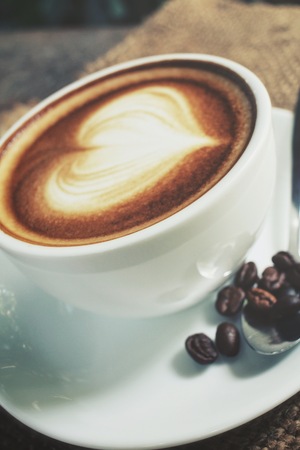1. Introduction: Caffeine and the Indian Way of Life
In India, caffeine is not just a chemical compound; it is woven into the very fabric of social life. From the bustling streets of Mumbai to tranquil villages in Tamil Nadu, caffeine finds its most celebrated expressions in two iconic beverages: chai and filter coffee. These drinks are more than just refreshments—they are rituals that mark daily routines, foster connections, and reflect India’s diverse traditions. Whether it is a morning cup shared among family members, a roadside chai with colleagues, or the aromatic filter coffee served during festive gatherings in South India, caffeine plays a pivotal role in facilitating conversations and building community bonds. Understanding this cultural significance reveals why discussions about caffeine’s benefits and challenges must be rooted in India’s unique social context.
2. Popular Sources of Caffeine in India
Caffeine consumption is deeply woven into the social and cultural fabric of India. While tea (chai) holds a special place in daily life, other caffeinated beverages and foods have also found their way into Indian routines, each reflecting unique regional preferences and lifestyles.
Traditional Beverages: Chai and Filter Coffee
Chai: In most Indian households, chai is more than just a beverage—its a ritual that brings people together, whether during morning gatherings or evening chats. This sweet, spiced milk tea is typically brewed with black tea leaves, sugar, milk, and a blend of spices like ginger, cardamom, and cloves. The caffeine content varies depending on the type and amount of tea used, but chai remains the primary source of caffeine for millions across the country.
South Indian Filter Coffee: For many in South India, filter coffee is the drink of choice. Made using a traditional metal filter, this strong and aromatic coffee combines dark roasted beans (often blended with chicory) with hot milk and sugar. The process and flavor profile make it distinct from instant coffees or Western espresso-based drinks, highlighting the region’s deep-rooted coffee culture.
Modern Trends: Cold Coffee and Energy Drinks
Cold Coffee: With changing lifestyles and urbanization, cold coffee has gained popularity among younger Indians. Served chilled with ice cream or whipped cream, this beverage offers a refreshing twist to traditional hot coffee while providing a caffeine boost that appeals to students and office-goers alike.
Energy Drinks: The rise of energy drinks like Red Bull, Monster, and indigenous brands such as Cloud 9 is evident in urban centers. These beverages are marketed for their instant energy benefits and high caffeine content. Young professionals, athletes, and college students often consume them during long working hours or exam preparations.
Caffeinated Foods: Chocolates & Sweets
Caffeine isn’t limited to drinks alone; it is also present in chocolates—especially dark chocolate—and some locally produced sweets that incorporate cocoa or coffee flavors. Although the caffeine content in these foods is generally lower compared to beverages, they contribute to the overall intake.
Caffeine Content Comparison Table
| Beverage/Food | Typical Serving Size | Approximate Caffeine Content (mg) |
|---|---|---|
| Masala Chai | 150 ml cup | 30-50 mg |
| South Indian Filter Coffee | 100 ml tumbler | 60-90 mg |
| Cold Coffee | 200 ml glass | 80-120 mg |
| Energy Drink | 250 ml can | 80-160 mg |
| Dark Chocolate (70%) | 30 g bar | 15-25 mg |
This table highlights how caffeine sources differ not only by type but also by region and age group preference in India. Understanding these sources helps individuals make informed choices about their daily caffeine intake while embracing India’s diverse beverage heritage.

3. Benefits of Caffeine in Indian Social and Work Life
The Ubiquity of Caffeine in Indian Households
Caffeine, mainly consumed through chai (tea) and coffee, holds a cherished place in every Indian home. It is not just a beverage but a ritual that brings families together—be it during morning prayers, evening chats, or weekend gatherings. Sharing a cup of chai is often seen as a gesture of warmth and hospitality, fostering stronger familial ties and neighbourly bonds.
Enhancing Alertness and Productivity at Work
In Indian workplaces, caffeine acts as an essential companion for professionals across industries. Whether it’s IT offices in Bengaluru or textile factories in Surat, a cup of tea or coffee is the go-to solution for combating fatigue and boosting concentration. Many employees rely on their “chai breaks” to recharge mentally, resulting in improved focus, faster decision-making, and enhanced productivity throughout the day.
Social Bonding over Chai and Coffee
Chai tapris (roadside tea stalls) and office pantries serve as hubs for social interaction, where people from diverse backgrounds connect over steaming cups. These moments provide opportunities for networking, brainstorming, and even conflict resolution. The act of sharing a beverage helps break down hierarchical barriers and encourages open conversations among colleagues, friends, and acquaintances.
Cultural Importance in Celebrations
Caffeine-based drinks are integral to Indian celebrations—from weddings to festivals like Diwali or Holi. Serving chai or filter coffee to guests is an age-old tradition symbolising respect and affection. This cultural practice strengthens community bonds and adds warmth to festive occasions.
Overall, caffeine’s presence in Indian society goes beyond mere consumption; it nurtures relationships, energises minds, and sustains the vibrant social fabric unique to India.
4. Challenges: Health, Habits, and Social Concerns
Caffeine has become deeply woven into the fabric of Indian social life, but this integration is not without its unique set of challenges. As the nation rapidly urbanises and lifestyles change, concerns about health, habits, and broader social effects are gaining attention.
Overconsumption in Urban and Rural India
With the easy availability of strong chai, filter coffee, energy drinks, and even global coffee chains in major cities like Mumbai, Delhi, and Bengaluru, overconsumption is a growing issue. Many Indians often lose track of daily caffeine intake, leading to possible health risks such as insomnia, acidity, palpitations, and dependency. In rural areas, strong tea brewed with excessive sugar is a staple during long work hours, further compounding health issues.
Late-night Chai Sessions and Sleep Disruption
Late-night chai sessions are a cultural ritual—whether during exam season for students or after-dinner conversations among adults. However, these nocturnal habits can disrupt sleep cycles and contribute to chronic fatigue. The importance placed on hospitality often means chai is served well into the night at family gatherings or weddings.
Caffeine Among Students: Exam Pressure and Mental Health
Caffeine consumption among Indian students spikes during board exams and competitive test seasons. While chai or coffee is seen as a productivity booster, excessive intake can increase anxiety levels, create restlessness, and affect memory retention.
| Challenge | Common Scenario | Potential Impact |
|---|---|---|
| Overconsumption | Multiple cups of chai/coffee daily at work or home | Insomnia, digestive issues, increased anxiety |
| Late-night habits | Chai served during midnight study sessions or social gatherings | Poor sleep quality, daytime drowsiness |
| Student stress | Binge-drinking caffeine before exams | Anxiety, poor concentration, health issues |
| Lifestyle changes | Switch from traditional beverages to high-caffeine options (energy drinks) | Higher risk of dependency and long-term health problems |
Changing Lifestyle Habits: Tradition vs Modernity
The shift from traditional herbal drinks like tulsi tea or masala doodh to highly caffeinated beverages reflects changing aspirations among young Indians. Exposure to Western culture through digital media fuels this trend but also brings along unfamiliar health risks and shifts away from Ayurveda-based wellness.
Navigating Social Pressures and Awareness Gaps
Social expectations often make it difficult to refuse an offered cup of chai or coffee, especially in professional or family settings. There remains a lack of awareness regarding safe caffeine limits and its cumulative effects on mental and physical health.
Towards Balanced Consumption
The challenges associated with caffeine in Indian society highlight the need for greater public awareness and education on responsible consumption. Recognising these unique scenarios helps pave the way for practical solutions tailored to Indias vibrant social landscape.
5. Practical Solutions for Mindful Consumption
Understanding Mindful Caffeine Habits in Indian Culture
In India, caffeine is deeply woven into social life, from early morning chai to late-night study sessions. While these rituals have cultural significance, mindful consumption is essential for balancing tradition and health. Here are some practical, culturally relevant solutions for Indians seeking to enjoy caffeine responsibly.
During Festivals: Sip with Awareness
Festivals like Diwali, Holi, or Eid often involve long nights and countless cups of tea or coffee served to guests. Instead of overindulging, opt for herbal infusions or decaffeinated versions during the later hours. Encourage family members to alternate between caffeinated and non-caffeinated beverages, especially when children or elders are present.
Family Gatherings: Tradition Meets Moderation
At large family gatherings or Sunday brunches, it is common for hosts to serve strong filter coffee or masala chai. Practise portion control by choosing smaller cups and sipping slowly to savour the flavours. Try introducing healthy snacks like roasted chana or dry fruits alongside your drink to reduce the urge for repeated refills.
Exam Preparations: Smart Strategies for Students
During exam season, students often rely on coffee or energy drinks to stay awake. Encourage youngsters to establish a set routine—limit caffeine intake after sunset and substitute with fresh lime water or buttermilk at night. Teach them the importance of hydration and regular breaks instead of excessive caffeine as a means of staying alert.
Tips for Mindful Caffeine Use Across Occasions
- Set personal limits: Know your own tolerance and stick to a daily cap, usually 2-3 small cups.
- Create rituals: Brew tea or coffee mindfully, focusing on aroma and taste rather than just the energy boost.
- Stay hydrated: For every cup of chai or coffee, have a glass of water alongside to maintain balance.
- Listen to your body: If you feel jittery or anxious, switch to traditional alternatives like tulsi tea or coconut water.
By making small yet significant changes in our caffeine habits during key social moments, Indians can preserve their cherished traditions while fostering better health and well-being.
6. The Path Ahead: Balancing Tradition and Well-being
India’s love affair with caffeine, whether in the form of masala chai shared at a roadside tapri or the rising popularity of artisanal filter coffee, is deeply woven into our social fabric. As we move forward, it is essential to nurture this vibrant culture while embracing health-conscious habits that resonate with modern lifestyles.
Honouring Rituals While Embracing Change
One way to preserve India’s rich caffeine heritage is by celebrating traditional preparation methods—like hand-pounded coffee in South Indian homes or slow-brewed chai in North India—while educating people about portion control and healthy accompaniments. Instead of loading chai with excessive sugar or opting for creamy, calorie-dense beverages, Indians can rediscover spice-infused blends and natural sweeteners like jaggery.
Promoting Mindful Consumption
Encouraging mindful consumption is key. Hosting community workshops on the health impacts of caffeine, especially among youth and working professionals, can help cultivate awareness. Cafes and local tea stalls could introduce “light” or herbal variants alongside traditional offerings, giving patrons choices that respect both taste and wellness.
Integrating Modern Health Trends
Indian urbanites are increasingly adopting global wellness trends. By incorporating practices such as limiting caffeine intake after sunset or balancing caffeinated drinks with hydrating alternatives like coconut water, we can strike a balance between tradition and modern science. Educational campaigns led by local influencers and health experts can further bridge the gap between old customs and new insights.
Cultivating Community and Conversation
Finally, let us not forget the social essence of caffeine in India. Whether it’s the early morning chai circles in villages or late-night coffeehouse debates in cities, these rituals bring people together. By fostering open conversations about healthy habits within these gatherings, Indians can ensure that tradition evolves without losing its warmth.
In essence, safeguarding India’s caffeine legacy while prioritising well-being requires collective effort—from families cherishing their tea-time stories to entrepreneurs innovating healthier brews. With thoughtful adaptation, India can continue to celebrate every cup—rooted in culture yet attuned to holistic health.


